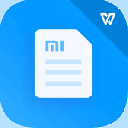










Data Communication & Networks

Beschrijving van Data Communication & Networks
The app is a complete free handbook of Data Communication networks covers important topics, notes, materials, news & blogs on the course. Download the App as a reference material & digital book for computer science, communications, networking engineering programs & degree courses.
This useful App lists 200 topics with detailed notes, diagrams, equations, formulas & course material, the topics are listed in 5 chapters. The app is must have for all the engineering science students & professionals.
The app provides quick revision and reference to the important topics like a detailed flash card notes, it makes it easy & useful for the student or a professional to cover the course syllabus quickly before an exams or interview for jobs.
Track your learning, set reminders, edit the study material, add favorite topics, share the topics on social media.
You can also blog about engineering technology, innovation, engineering startups, college research work, institute updates, Informative links on course materials & education programs from your smartphone or tablet or at http://www.engineeringapps.net/.
Use this useful engineering app as your tutorial, digital book, a reference guide for syllabus, course material, project work, sharing your views on the blog.
Some of the topics Covered in the app are:
1. Introduction to digital Communication
2. Data Communication Components
3. Data flow in Data Communication
4. NETWORKS CRITERIA
5. Connection Types
6. Network Topology
7. Local Area Network
8. Wide Area Network
9. Metropolitan Area Networks(MAN)
10. The OSI Model
11. The TCP/IP model
12. Difference between OSI model and TCP/IP model
13. Connection-oriented Services
14. Connection-less Services
15. Network Standardization
16. ISO (International Standards Organization).
17. The ARPANET
18. NSFNET
19. Pulse Code Modulation (PCM)
20. Sampling
21. Quantization
22. Delta Modulation (DM)
23. TRANSMISSION MODES
24. Parallel Transmission
25. Serial Transmission
26. X.21 Interface
27. X.21 Protocol Operation
28. ETHERNET
29. STANDARD ETHERNET
30. STANDARD ETHERNET-FRAME LENGTH
31. STANDARD ETHERNET-ADDRESSING
32. STANDARD ETHERNET-ADDRESSING
33. STANDARD ETHERNET-PHYSICAL LAYER
34. FAST ETHERNET
35. FAST ETHERNET-PHYSICAL LAYER
36. FAST ETHERNET-PHYSICAL LAYER-ENCODING
37. GIGABIT ETHERNET
38. GIGABIT ETHERNET-Physical Layer
39. Ten-Gigabit Ethernet
40. Magnetic Media
41. Twisted Pair
42. Coaxial Cable
43. Fiber Optics
44. Fiber Cables
45. Fiber Optic Networks
46. Comparison of Fiber Optics and Copper Wire
47. MULTIPLEXING.
48. Frequency-Division Multiplexing
49. Wavelength-Division Multiplexing
50. Time-Division Multiplexing
51. Time-Division Multiplexing
52. Synchronous Time-Division Multiplexing
53. Interleaving Time-Division Multiplexing
54. Digital Signal Service
55. T Lines
56. Switching
57. Types of Switching
58. Circuit-switched networks
59. Phases of Circuit-switched networks
60. Datagram Networks
61. Virtual-circuit network addressing
62. RS-232
63. RS 232 Lines and their usage
64. Development of RS 232
65. RS232 handshaking with XON/XOFF
66. RS-232 Signals and RS232 voltage levels
67. RS 232 Handshaking
68. RS232 Serial Loopback Connections
69. RS232 Serial Data Cables and Pin Connections
70. RS-422 serial transmission
71. RS449 Basics, Interface
72. RS449 Primary connector pinout, Interface
73. RS-485
74. ISDN
75. ISDN Architecture
76. ISDN channels.
77. ISDN Services
78. Types of Errors
79. Error-Correcting Codes
80. Error-Detecting Codes
81. FRAMING
82. Variable-Size Framing
83. Flow Control
84. Error Control
85. CLASSIFICATION OF PROTOCOLS
86. Simplest Protocol
Each topic is complete with diagrams, equations and other forms of graphical representations for better learning and quick understanding.
Data Communication networks is part of computer science engineering education courses and technology degree programs in various universities.


























